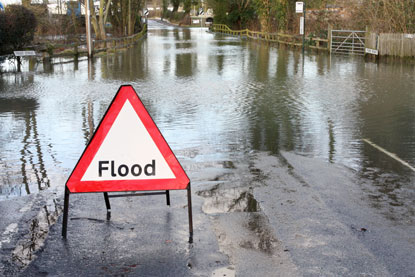
Image © Shutterstock
Major flooding incidents driven by climate change will impact the most deprived areas hardest unless there is a significant change in government policy.
Research from the Flash Flood Resilience Index, developed by public sector insurer Zurich Municipal, found more than 380,000 households in England at heightened risk of flash floods are living in severe deprivation – 75,000 more than in the least deprived areas.
Birmingham has the highest number of deprived households at risk followed by Kingston upon Hull, Manchester, Liverpool and Leeds.
It concluded nearly a million people in England are at risk.
The impact of rising water levels on communities is becoming an increasingly important – and expensive – issue.
Earlier this year, residents in Hemsby, Norfolk had to abandon their homes after sea water eroded cliffs.
The insurer warned that without action, communities would be left uninsurable.
A report in 2021 by the Public Accounts Committee found that the proportion of funding going to these areas has fallen since 2014.
Baroness Brown, chair of the Adaptation Committee, at the Climate Change Committee, said: “A proactive approach to improving flood resilience is essential. Vulnerable individuals and groups often have less capacity to respond to hazards such as flooding, so the approach we take to investment must consider fairness.”
Norfolk isn’t the only area to be impacted – a major incident was declared on the Somerset Levels in January.
The insurer not only called for policy change but for a proactive response from the government with up-front grants to help households improve their resilience.
Amy Brettell, managing director of Zurich Municipal, said: “Much of the responsibility for managing flooding and its impact falls on councils, which are desperately under resourced to cope with the growing climate risks their communities face.
“In deprived areas, repeated episodes of flash flooding could compound existing disadvantages. This poses a stark threat to community wellbeing as well as the government’s levelling up agenda.
“There is a powerful case for the government to review its current spending on flood risk to ensure it is fairly targeted at the most at-risk families and local authorities.”
The government has argued it has invested in measures to protect communities.
The Environment Agency has stated it is investing in flood defences: “We are delivering on the government’s record £5.2bn investment in new flood and coastal defences by 2027. This builds on our successful delivery of the previous six-year programme, better protecting more than 314,000 homes since 2015.”











